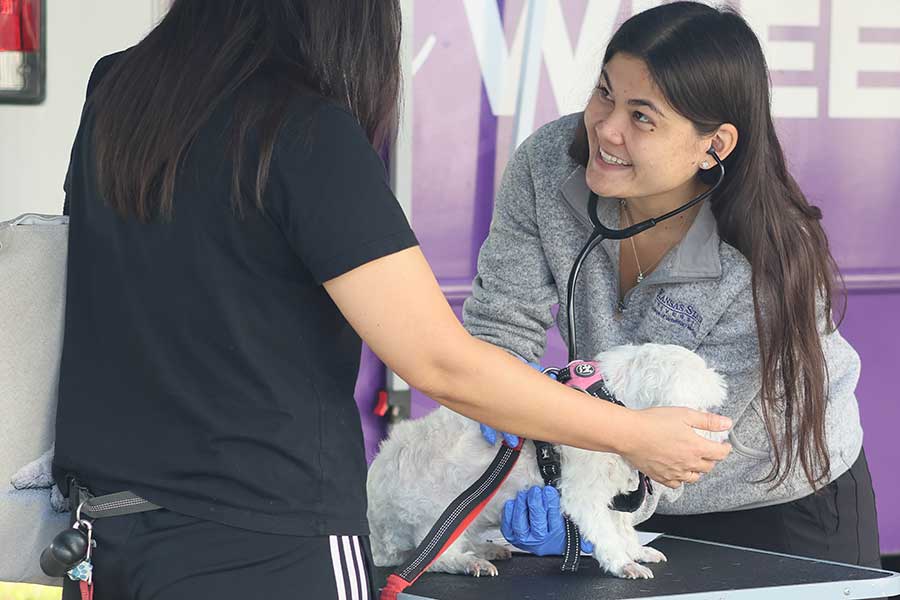Collaborative research at Kansas State University finds most dogs are vaccinated in accordance with veterinarians’ recommendations
The numbers are in, and the research reveals that nearly every dog does indeed have its day. According to newly published research, almost all owners — 94.7% — reported their dogs were vaccinated against various diseases as recommended by their veterinarians.
Researchers with K-State’s College of Veterinary Medicine’s Center for Outcomes Research and Epidemiology, or CORE, along with the Dog Aging Project and the Virginia-Maryland College of Veterinary Medicine published these findings this summer in the American Journal of Veterinary Research.
Dogs owned by respondents with a bachelor’s degree compared to those of respondents with less than a bachelor’s degree education level were significantly more likely to be vaccinated per their veterinarian’s recommendations. Income level also showed a difference in rates of vaccination. Dogs of respondents with an annual income ranging from $40,000 to $59,999 were significantly more likely to be vaccinated as recommended by their veterinarian, than those of owner with an annual income level of less than $20,000. Because of these differences, the researchers recommend vaccine literacy programs targeted at increasing dog vaccine uptake among low-income pet owners.
 Vaccinations are a standard practice for veterinary students who travel with the K-State Community Outreach team to host vaccinations clinics and provide service at community events, such as Everybody Counts Manhattan, in this file photo.
Vaccinations are a standard practice for veterinary students who travel with the K-State Community Outreach team to host vaccinations clinics and provide service at community events, such as Everybody Counts Manhattan, in this file photo.
“This research project is one of many that align with one of CORE’s goals to provide valid, data-driven information for veterinarians and the animal health community,” said Dr. David Renter, CORE’s director, who is an epidemiologist and the Dr. Robert MacDonald Professor of Veterinary Medicine at K-State. He was a co-author on the project.
The lead author, Dr. John Ekakoro, was a research associate at K-State when the research was originally conducted. He was assisted by Dr. Renter, Dr. Natalia Cernicchiaro, CORE’s associate director and professor of epidemiology, and Dr. Audrey Ruple, a researcher with the Dog Aging Project and the Metcalf Professor of Veterinary Medical Informatics at the Virginia-Maryland College of Veterinary Medicine. Dr. Ekakoro is now an assistant professor at the Shreiber School of Veterinary Medicine of Rowan University in New Jersey.
“This research provides important insights into how demographic factors influence whether dogs receive recommended vaccinations — an essential component of both individual animal health and public health more broadly,” Dr. Ruple said. “Collaborating with colleagues at CORE made it possible to approach these questions with the rigor and scale necessary to generate meaningful, actionable findings that support evidence-based decision-making in veterinary medicine.”
“CORE’s investment in Dr. Ekakoro’s work reflects our commitment to advancing impactful animal health research,” Dr. Renter said. “We would welcome opportunities for future collaborations such as this with Dr. Ruple and the Dog Aging Project team, as well as other researchers, practitioners and industry partners to address important animal health issues.”
The full article is available online, “Self-reported dog vaccination practices in pet owners enrolled in the Dog Aging Project in the United States found most dogs were vaccinated according to veterinarians’ recommendations.”